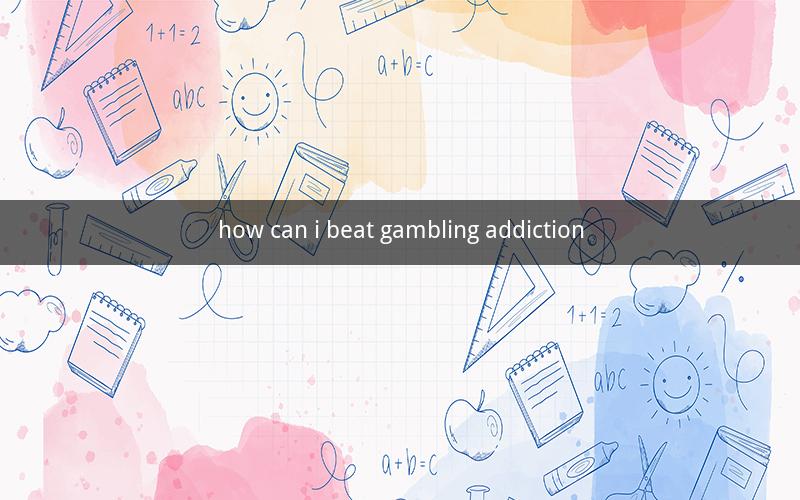
Contents
1. Understanding Gambling Addiction
2. The Impact of Gambling Addiction
3. Identifying Symptoms of Gambling Addiction
4. Seeking Professional Help
5. Building a Support System
6. Developing Coping Mechanisms
7. Setting Realistic Goals
8. Financial Management
9. Alternative Activities
10. Staying Accountable
Understanding Gambling Addiction
Gambling addiction, often referred to as a behavioral addiction, is a condition where individuals engage in gambling activities excessively, leading to significant negative consequences in their personal, professional, and financial lives. Unlike substance addiction, gambling addiction involves the repetitive engagement in gambling activities without any physical substance dependence.
The Impact of Gambling Addiction
The impact of gambling addiction can be profound. It can lead to financial ruin, strained relationships, job loss, and even legal problems. Additionally, individuals with gambling addiction may experience emotional and psychological distress, including anxiety, depression, and a sense of shame.
Identifying Symptoms of Gambling Addiction
Identifying the symptoms of gambling addiction is crucial in addressing the issue. Some common symptoms include:
- Preoccupation with gambling, including planning and anticipating the next opportunity to gamble
- Needing to increase the amount of money or time spent gambling to achieve the desired excitement or thrill
- Feelings of guilt, remorse, or shame after gambling
- Repeated failed attempts to stop or control gambling
- Continuation of gambling despite negative consequences
Seeking Professional Help
Seeking professional help is an essential step in overcoming gambling addiction. Professional help can come in various forms, including therapy, counseling, and support groups. Therapists can provide personalized strategies to manage cravings, develop coping mechanisms, and address underlying issues contributing to the addiction.
Building a Support System
Building a support system is crucial in overcoming gambling addiction. This can include friends, family, support groups, and professionals. A strong support system can provide emotional support, encouragement, and practical advice during the recovery process.
Developing Coping Mechanisms
Developing coping mechanisms is essential in managing the urge to gamble. Coping mechanisms can include relaxation techniques, mindfulness exercises, and engaging in alternative activities that provide a sense of fulfillment and enjoyment.
Setting Realistic Goals
Setting realistic goals is crucial in the recovery process. Goals should be specific, measurable, achievable, relevant, and time-bound (SMART). Examples of goals include limiting the amount of money spent on gambling, attending support group meetings regularly, and engaging in alternative activities for a certain amount of time each day.
Financial Management
Financial management is a critical aspect of overcoming gambling addiction. It involves creating a budget, tracking expenses, and seeking financial counseling if necessary. Learning to manage finances effectively can help prevent the temptation to gamble and reduce the risk of financial ruin.
Alternative Activities
Engaging in alternative activities can help alleviate boredom and reduce the urge to gamble. Activities such as exercise, hobbies, and socializing with friends and family can provide a sense of fulfillment and enjoyment.
Staying Accountable
Staying accountable is essential in maintaining sobriety from gambling addiction. This can include sharing progress with a support system, setting reminders to avoid gambling, and seeking professional help if the urge to gamble becomes overwhelming.
FAQs
1. What is the first step in overcoming gambling addiction?
- The first step is to recognize and acknowledge that you have a gambling addiction.
2. Can gambling addiction be cured?
- While there is no cure for gambling addiction, it can be effectively managed and controlled through treatment and support.
3. How long does it take to recover from gambling addiction?
- The duration of recovery varies from person to person, but many individuals find success within a few months to a few years.
4. Is it possible to recover from gambling addiction without professional help?
- While some individuals may recover without professional help, seeking support from therapists, counselors, and support groups can significantly increase the chances of successful recovery.
5. How can I stay motivated during the recovery process?
- Staying motivated can be challenging, but setting realistic goals, celebrating small successes, and maintaining a strong support system can help.
6. Can my family and friends help me overcome gambling addiction?
- Yes, family and friends can play a crucial role in supporting your recovery. They can provide emotional support, practical advice, and encouragement.
7. Is there a genetic component to gambling addiction?
- Some research suggests that there may be a genetic component to gambling addiction, but environmental and psychological factors also play a significant role.
8. Can medication help treat gambling addiction?
- While there are no specific medications for gambling addiction, some medications may be prescribed to address underlying mental health conditions contributing to the addiction.
9. Can I gamble responsibly?
- It is challenging to gamble responsibly when you have an addiction. The best approach is to avoid gambling altogether until you have achieved sobriety.
10. What should I do if I relapse?
- If you relapse, it's important to not get discouraged. Acknowledge the relapse, seek support from your support system, and focus on getting back on track with your recovery plan.